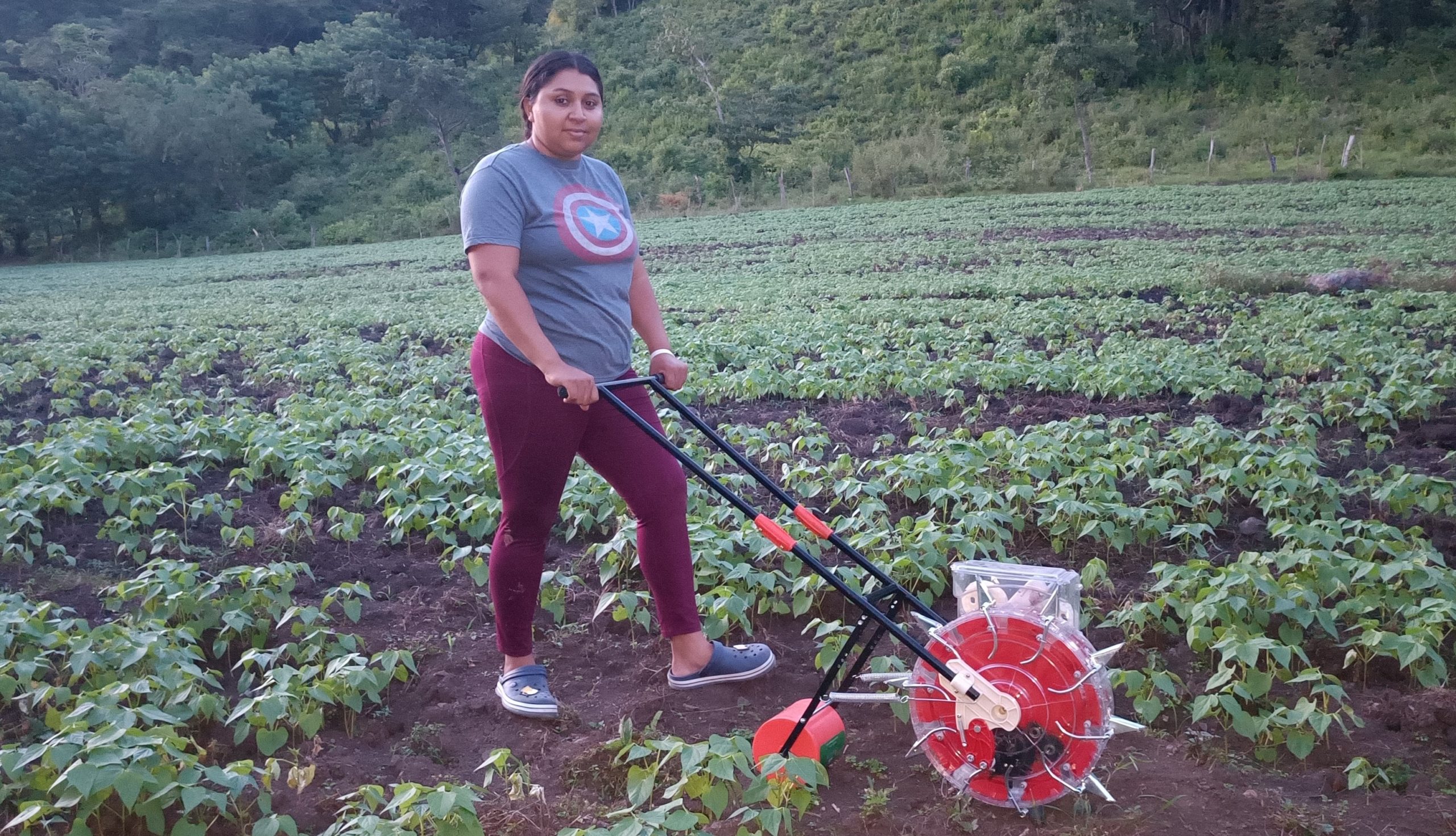Agricultural program empowers women and girls in Honduras
Story

Life in rural communities across Honduras can be difficult.
For farmers like Sandra Marlenis Betanco Mejia, accessing basic farming resources can be costly — especially in a country susceptible to tropical hurricanes. In late 2020, Honduras was battered by two back-to-back hurricanes, causing floods, landslides, and severe damage to agriculture throughout the country.
Most recently, Hurricane Julia swept through the country in October 2022, causing extensive crop damage and leaving Sandra and others in her community worrying about food security, especially women and other underserved populations.
Like many Honduran farmers residing in remote communities within the district of Olancho, Sandra was introduced to the agriculture sector through her family. Traditionally a male-dominated activity, Sandra felt it was important to advance her skills to set an example for her daughter and learn self-sustainable farming skills to support her family and community.
Realizing how highly affected agriculture is by climate change, Sandra enrolled in the Cuso International-led agriculture program Support to the Resilient Reactivation of Livelihoods Affected by Hurricanes Eta and Iota. The project provides families with agriculture kits containing various farming tools, training workshops focused on adapting agriculture methods to climate change and healthy nutrition habits, facilitated by Cuso International volunteers.
Further, the program aims to close the gender gap by empowering and training women as farmers, so they can generate an income for their families while also increasing knowledge on climate change and its negative effects in their community.
In addition, Fundación de los Centros Familiares Educativos para el Desarrollo de Honduras (Educational Family Centres for the Development of Honduras), a Cuso International project partner, helps connect individuals in these remote communities with water harvesters and irrigation and fertigation systems.
With these systems, small-scale Honduran farmers in remote areas, like Sandra, are able to sow and harvest before hurricane season.
“Before enrolling in the trainings, we sowed by hand and had to hire people to help with irrigation and spraying,” Sandra says. “With the agriculture kits that were given to us, we don’t have that extra cost of paying someone else. We are self-sustainable with our crops.
Without the program, thousands of families wouldn’t have access to food, clean drinking water or an income.
Sandra also explains how the training has freed up some of her time.
I have been able to undertake other activities,” she says, adding she now attends school on weekends.
The project aims to benefit and improve the lives of families in Yocón, Mangulile, La Unión, El Rosario and Catacamas through agricultural education training. Within these five municipalities, more than 3,000 families will benefit.